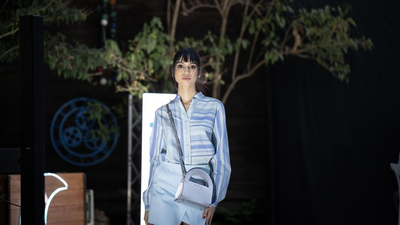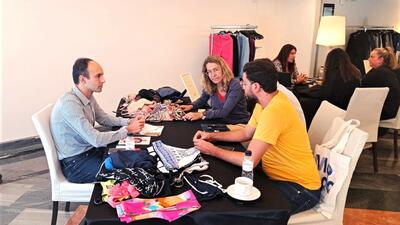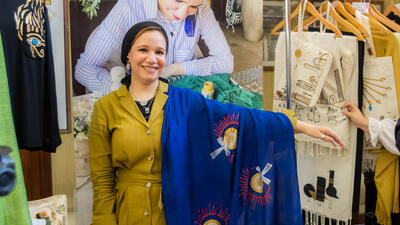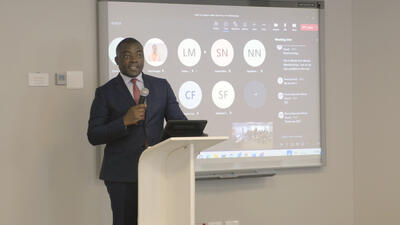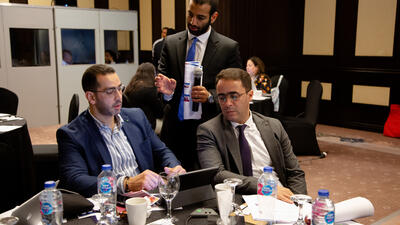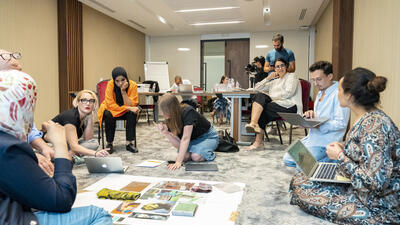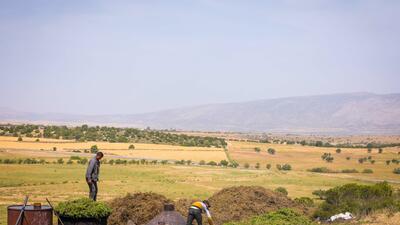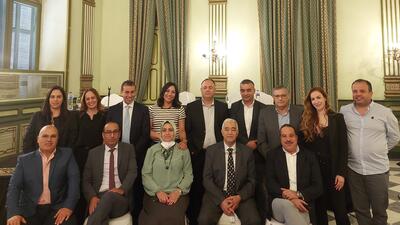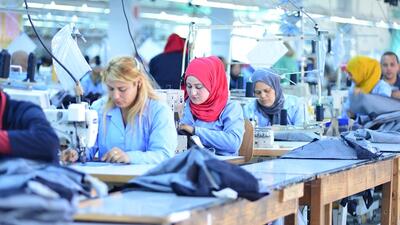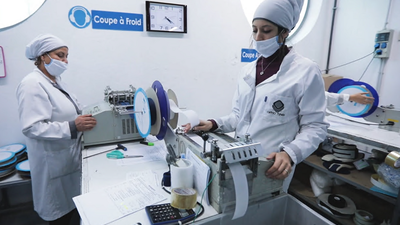


From local success to global impact: GIL's textile journey
In the face of global competition, Tunisia is emerging as a key supplier for international textile and apparel brands. Explore GIL's successful transition to European markets through the GTEX/MENATEX programme.
Groupe International de Lingerie (GIL) began in 1988 as a family-owned venture that worked as a subcontractor for makers of lingerie and swimwear. Its founders launched the company with unparalleled expertise – Mohammed Turki in knitwear, and Noamen Turki in denim.
Now GIL has blossomed into a dynamic force in the textile industry, seamlessly transitioning to co-manufacturing and delivering finished goods. Noamen Turki’s two children Salah and his sister Leila Turki later joined the leadership team, a strategic infusion that turned GIL into an innovative powerhouse, steering towards a digital future.
The pivotal chapter in GIL's narrative unfolded in 2018, when it started working with the GTEX/MENATEX programme at the International Trade Centre (ITC). This transformative initiative proved instrumental in catapulting GIL into uncharted international markets. Imbued with newfound skills garnered during the programme's inaugural phase, GIL emerged as a frontrunner in the ever-evolving landscape of global textile trends.
Salah went through the "Elite Salesman" training programme, which strengthened his negotiation and active listening skills. This has enabled him to better adapt his offers to the needs of his customers, and to increase the number of agreements signed.
The unveiling of lean management techniques brought a wave of innovation to GIL's team, ushering in new methods to optimize the production chain. With a keen focus on efficiently measuring cutting performance and cycle time, this training initiative became instrumental in enhancing production and goods movement times — from precise cutting to seamless packaging. Armed with these newfound skills and aligned with international standards, GIL not only streamlined its operations but also positioned itself for more lucrative ventures in business missions organized through the GTEX/MENATEX programme.
Following the successful mission across Germany, Belgium, and the Netherlands in 2022, GIL witnessed a remarkable turn of events. An initial swimwear order from a newfound Dutch client marked the beginning of a successful partnership. The exceptional quality of GIL's products, coupled with their effective retention strategy, garnered additional orders from the same client in 2023, solidifying their standing in the international market.
Similarly, a mission to Spain in 2022 sparked immediate collaboration with a discerning Spanish swimwear buyer. The satisfaction derived from this partnership prompted the client to place a larger second order for the same product range. Buoyed by a positive recommendation from this Spanish partner, GIL contacted another Spanish buyer who swiftly became another satisfied client. GIL exceeded the expectations of this new client, successfully delivering the first order according to their unique requirements. These triumphs reflect GIL's unwavering commitment to excellence and its ability to forge lasting connections in the global marketplace.
‘In light of the international situation, order volumes per client have seen a slight decrease. However, it's remarkable to note a positive trend, with more and more clients turning to Tunisia. This represents a favourable opportunity for GIL to explore new international markets, said Salah Turki.
Faced with increasing customer demand, GIL expanded its production capacity by establishing subcontracting partnerships with three local companies located in Kélibia, Sfax, and El Hencha.
‘GIL continues to innovate and work on adapting its factories to Corporate Social Responsibility and quality standards for more business alliances and international success stories,’ said Salah Turki.
About the GTEX/MENATEX programme
The Global Textiles and Clothing Programme (GTEX) and its related work in the Middle East and North Africa (MENATEX) supports small and medium-sized enterprises and business support organizations working in the textile and clothing industry in developing countries to increase their export competitiveness.
The GTEX/MENATEX programme is funded by the State Secretariat for Economic Affairs (SECO) of the Swiss Confederation and the Swedish International Development Cooperation Agency (Sida), focusing on six priority countries (Egypt, Morocco, Jordan, Kyrgyzstan, Tajikistan and Tunisia).





